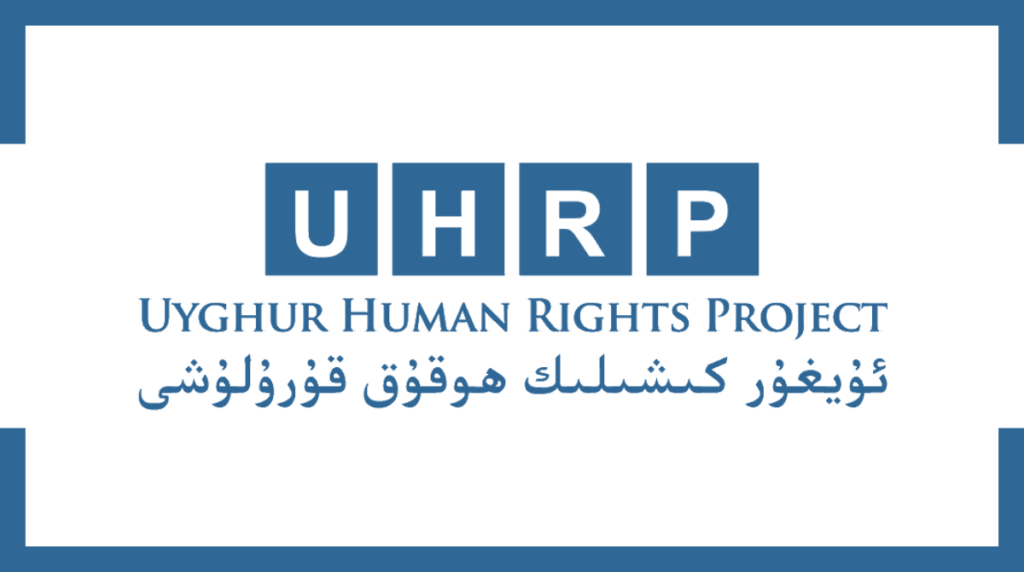Human Rights Day 2022

December 10, 2022
By Henryk Szadziewski, UHRP Director of Research and Peter Irwin, Senior Program Officer for Advocacy & Communications, Uyghur Human Rights Project
December 10, 2022, marks the seventy-fifth United Nations designated Human Rights Day. An occasion to reflect on the universality of human rights, ongoing crises, and pathways to realizing an end to abuses. This year, the theme is “Dignity, Freedom, and Justice for All,” in which “the values, and rights enshrined in the UDHR provide guideposts for our collective actions that do not leave anyone behind.”
The People’s Republic of China shares a history almost as long as Human Rights Day. Decades the Chinese party-state has spent debasing Uyghur political, civil, economic, social, and cultural rights. Now, Uyghurs are not merely “left behind,” but undergoing what many observers consider a genocide. Meticulous documentation has described a systematic campaign to eradicate Uyghur culture, religion, and language through policy and practice. Moreover, evidence has emerged of widespread forced labor, disappearances, mass imprisonment, torture, sexual abuse, and coercive birth prevention measures.
However, it is not just the Uyghurs’ enduring loss of fundamental human rights that is at stake, but also the Uyghur peoples’ faith in the international human rights system if the United Nations does not act. Volker Türk, the new United Nations High Commissioner for Human Rights, has made several encouraging comments on meeting the mandate of his position and holding China to account. In October 2022, the month he took office, Türk declared his intent to be “a High Commissioner who is not bound to any agenda except to the Charter of the United Nations, to the Universal Declaration of Human Rights and the whole human rights framework that exists.” The following month, regarding the damning OHCHR report on rights conditions for Uyghurs, Türk said, “It’s my office’s report, and I’m invested in it…There are strong recommendations, and my focus will be on finding ways and means to engage with the Chinese authorities on implementing those recommendations.”
It is now time for Volker Türk to explore his options to put weight behind his words.
Mr. Türk is more than aware of the urgency of his task. After the collapse of a draft proposal from a group of states comprising the United Kingdom, Canada, and the United States seeking the Human Rights Council to hold a formal debate on Uyghur human rights, our organization noted, “With this vote, the international community has failed to bring ‘urgent attention’ to the situation in the Uyghur region, as recommended by the UN report.” We are not alone in our concerns about merely establishing a forum to consider the allegations against China. For the past two years, over 300 NGOs from all regions of the world have called for a UN-mandated mechanism to monitor and report on human rights in China. Over 40 UN experts have issued a similar call on three occasions, signaling an unprecedented degree of concern across the UN’s human rights expert bodies.
At this stage of his tenure, Volker Türk needs to ask himself two questions, if China, as a powerful state, is treated differently, how can the UN system hold other powerful states responsible for abuses? Isn’t this a big gap in the system?
Yet, there are still several advocacy pathways at the United Nations. First, the Committee on the Elimination of Racial Discrimination has just released a decision calling for more investigation, for China to cease detentions, and for victims to receive “adequate and effective remedies and reparation,” adding that the matter should be referred to the Secretary-General on the Responsibility to Protect. Second, in 2023, China is up for its Universal Periodic Review, as well as before the Committee on Economic, Social and Cultural Rights and the Committee on the Elimination of Discrimination against Women. Third, the International Labour Organization process is moving forward that could lead to a Commissioner of Inquiry. Fourth, the special advisor on genocide prevention has a clear mandate to act by briefing to the Secretary-General or the Security Council. Last, another vote or resolution at the upcoming Human Rights Council should be tabled to discuss the issue of Uyghurs’ fundamental human rights. It is at this time when Mr. Türk should be clear that discussion about the report from his office should occur.
Clearly, Volker Türk and the Office of the High Commissioner for Human Rights cannot control all the pathways outlined above; however, he has significant power to affect many of them by taking a lead and building momentum across the entire United Nations system in defending Uyghurs from an genocide. It is not only about making the right decisions at the right time in history for Mr. Türk, but also to realize the lofty rhetoric surrounding Human Rights Day that dignity, freedom, and justice belong to everyone.
